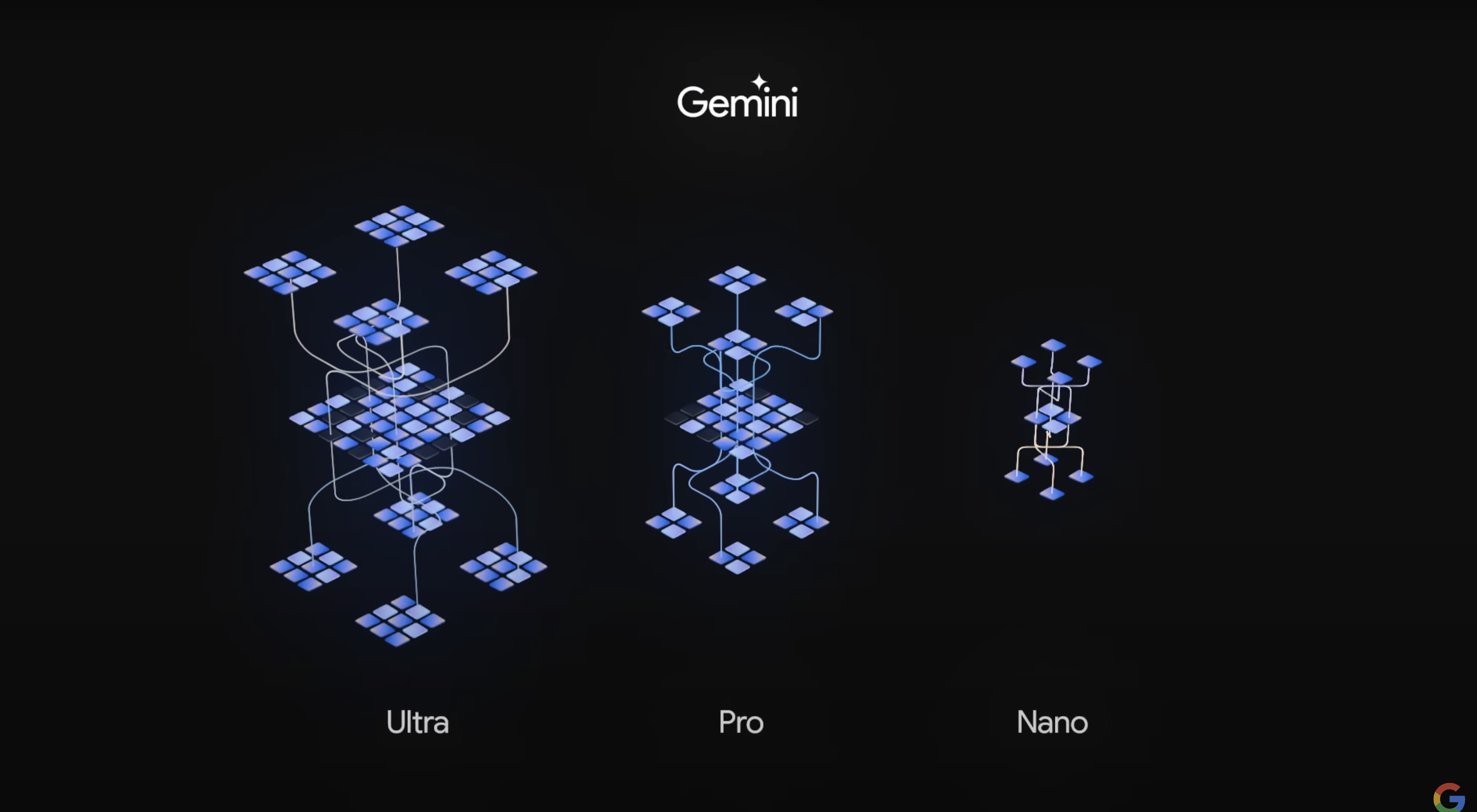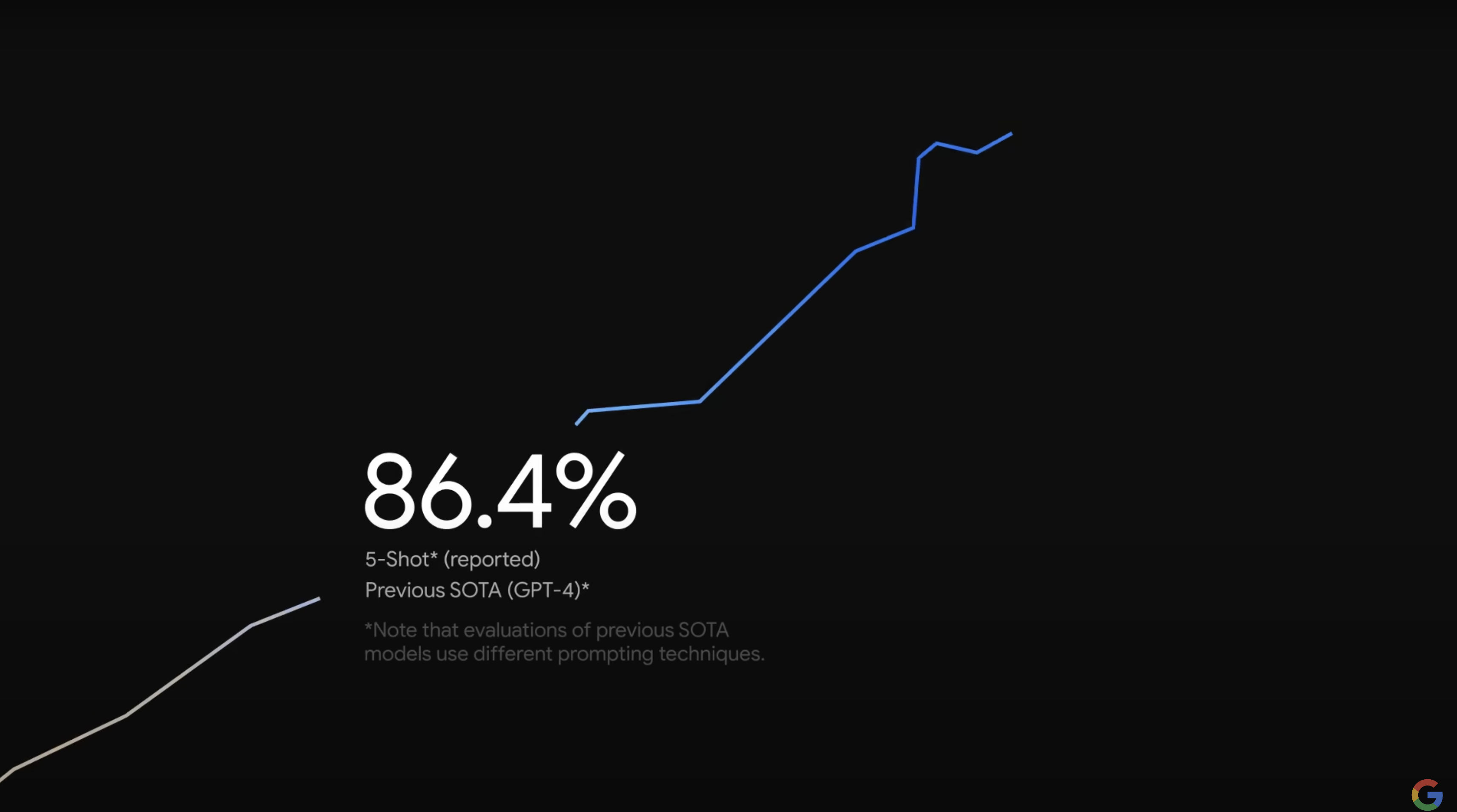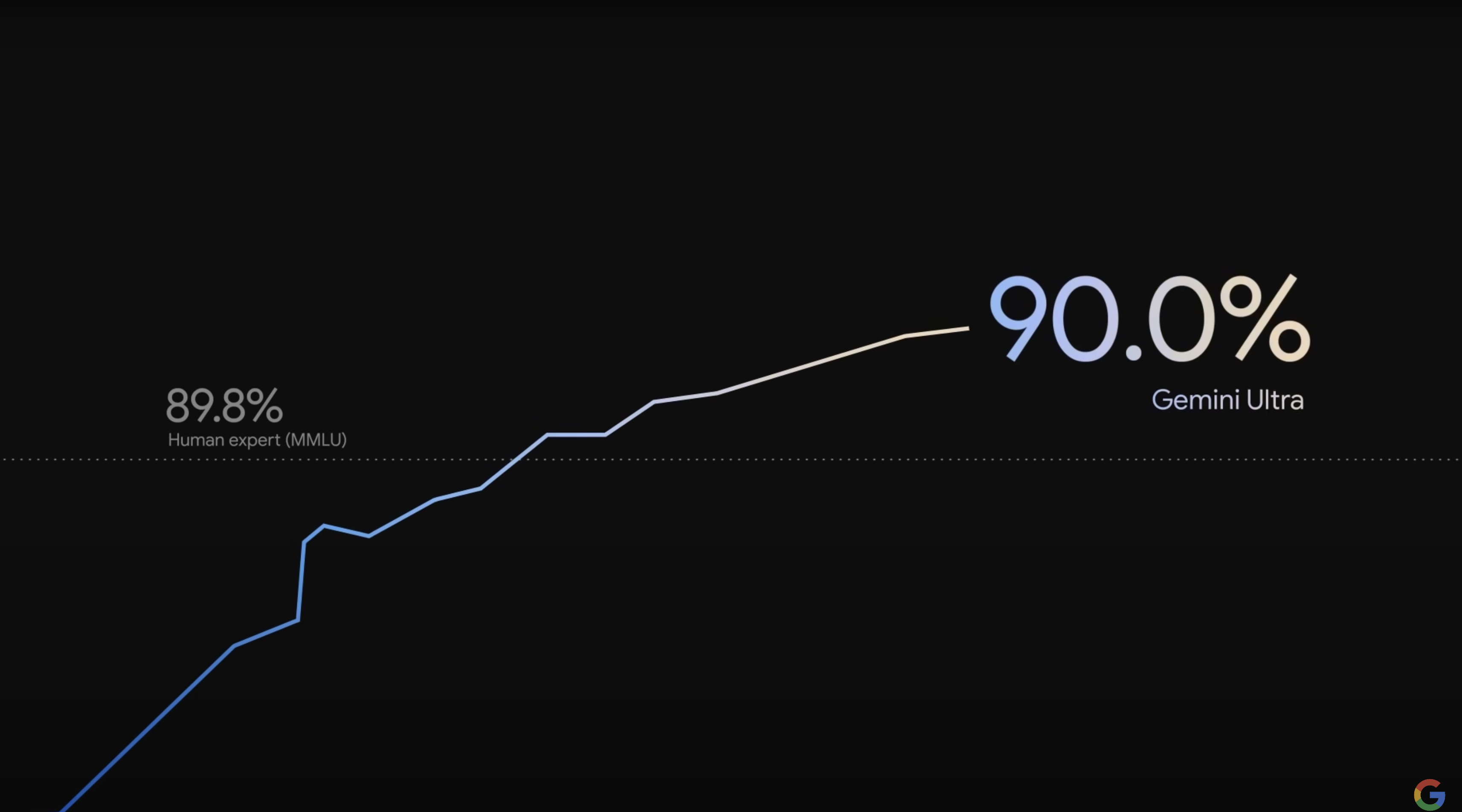Google’s Gemini AI Model – Pioneering a New Chapter in AI Technology
In an industry-defining moment, Google has unveiled Gemini, its most advanced artificial intelligence model yet, poised to take on the formidable GPT-4 by OpenAI. This strategic move by Alphabet Inc. not only intensifies the competition in the AI landscape but also signals Google’s unwavering commitment to pioneering the future of AI technology. Gemini stands out as a technological marvel, proficient in processing a diverse array of information, encompassing video, audio, and text, thereby elevating the capabilities of AI beyond its current frontiers.
The unveiling of Gemini represents a significant milestone in Google’s AI journey, marking it as one of the most ambitious science and engineering endeavors in the company’s history. Alphabet CEO Sundar Pichai’s announcement reflects the immense potential that Gemini holds in revolutionizing AI applications. With this launch, Google is not just introducing a new AI model; it’s igniting a new era in AI innovation, challenging the status quo and setting new benchmarks for AI technology.
This detailed article delves into the core functionalities of Gemini, its comparative strengths against the renowned Chat GPT, and the broad spectrum of possibilities it opens up in AI research and development. We will explore the cutting-edge technology underpinning Gemini, its implications for the AI industry, and how it aligns with Google’s strategic vision for the future of artificial intelligence. This analysis aims to provide AI enthusiasts, technology industry observers, and business professionals with a comprehensive understanding of Gemini’s role in shaping the next generation of AI technology.
Google’s Gemini AI model is not just a testament to the company’s innovation prowess; it’s a beacon of the transformative power of artificial intelligence. As we unfold the layers of Gemini’s capabilities, we will examine how this AI model stands as a paradigm shift in the world of AI, potentially redefining the landscape of technology and setting new standards for AI efficiency, adaptability, and complexity.
Understanding Gemini’s Advanced AI Features: A Simplified Overview
Google has recently unveiled its latest AI innovation, the Gemini AI model, marking a significant milestone in artificial intelligence. For those new to AI, understanding Gemini’s capabilities can be fascinating. This section aims to explain, in simple terms, what makes Gemini so special and how it stands out in the world of AI.
What Makes Gemini Different: Imagine having a conversation with someone who not only understands what you’re saying but also picks up on the tone of your voice, the context of the conversation, and even the emotions behind your words. That’s similar to what Gemini can do, but on a much larger scale and with various types of information, including text, images, and sounds.
Gemini’s Multitasking Abilities: Most AI models we hear about, like ChatGPT, are mainly focused on text — they read and write responses. Gemini, however, is like a multitasker. It can understand and process different types of information all at once. Think of it as someone who can read a book, listen to music, and watch a movie simultaneously, making sense of all these experiences together.
More Than Just Understanding Words: Gemini is designed to grasp the nuances in information. This means it can understand the subtle differences in meanings, contexts, and even implied messages, much like how humans can read between the lines. This ability makes Gemini potentially more ‘intelligent’ and ‘aware’ compared to previous AI models.
Efficiency and Accessibility: Despite its advanced abilities, Gemini is created to be efficient and cost-effective. It’s like having a super-powerful computer that doesn’t consume a lot of electricity. This efficiency is important because it means that such advanced AI technology can be used more widely without incurring huge costs or environmental impacts.
Integration with Google Products: A part of Gemini has already been integrated into Google’s AI assistant, Bard. This means that some of Gemini’s smart features are starting to make their way into tools and apps that people use daily, making these tools more helpful and intuitive.
In essence, Gemini represents a leap forward in making AI smarter and more versatile. It’s like having a highly intelligent assistant that understands not just what you say, but also how you say it and what you mean, across various forms of communication.
The next sections will explore how Gemini compares to other popular AI models like Chat GPT and discuss the impact this new AI technology could have on our daily lives and the future of AI.

Gemini vs. Chat GPT: A Comparative Look for Beginners
In the world of AI, the recent introduction of Google’s Gemini has sparked a lot of interest, especially in comparison to the already popular Chat GPT from OpenAI. Understanding how these two AI models differ can be intriguing, even for those who are new to AI. Here’s a beginner-friendly comparison to help grasp what sets Gemini apart from Chat GPT.
Chat GPT: The AI Conversationalist
- What It Does: Chat GPT is like a highly intelligent chatbot. It excels in understanding and generating text, making it great for conversations, writing essays, or even composing poetry.
- How It Works: Imagine Chat GPT as a very knowledgeable librarian who has read a vast number of books and can write or talk about almost any topic you ask.
Gemini: The AI Multitasker
- Beyond Text: While Chat GPT focuses on text, Gemini is more like a jack-of-all-trades. It’s not just good at text; it can understand images and audio too. Think of Gemini as a combination of a librarian, an art critic, and a music composer, all rolled into one.
- Nuanced Understanding: Gemini is designed to understand nuances better – it’s like having a conversation with someone who not only understands the words but also the emotion and context behind them.
Key Differences:
- Versatility: Gemini is more versatile because it can process and understand different types of information, not just text.
- Depth of Understanding: While Chat GPT can generate responses based on a vast amount of text data, Gemini can potentially provide more nuanced and context-aware responses by integrating various data types.
- Applications: Chat GPT is great for tasks that involve language, like writing or customer service. Gemini, with its broader capabilities, could be used in more diverse applications, such as analyzing videos or providing more interactive and responsive AI assistance.

Can Gemini Beat Chat GPT?
- It’s like comparing a specialist (Chat GPT) with a multi-skilled professional (Gemini). While Chat GPT has proven its prowess in handling text, Gemini’s broader capabilities present a new realm of possibilities. Whether Gemini can ‘beat’ Chat GPT depends on what we’re looking for. If the task involves multiple types of data (like text, image, and sound), Gemini might have the upper hand.
In summary, both Chat GPT and Gemini are impressive AI models, but they serve slightly different purposes. Gemini’s launch by Google is certainly a significant step in AI development, showcasing a model that can handle a wider range of tasks and understand information in a more holistic manner.
The next section will discuss the technical innovations and efficiencies introduced with Gemini, including how they contribute to making AI more accessible and effective.
Gemini’s Technical Innovations and Efficiencies
For those new to AI, the technical aspects of Google’s Gemini AI model might seem complex, but they represent some truly remarkable advancements in the field. This section aims to break down these innovations and efficiencies in a way that’s easy to understand, highlighting why they are significant.
Innovations in AI Processing:
- Multimodal Capabilities: One of the standout features of Gemini is its ability to process different types of data — text, images, and audio. Imagine having a smartphone that can understand not just your typed messages but also your photos and voice notes. That’s similar to how Gemini processes information.
- Advanced Reasoning: Gemini is designed to not only process information but also to understand it in a more sophisticated way. It’s like having a conversation with someone who doesn’t just hear your words but truly understands what you’re saying, even the subtle hints or implied meanings.
Efficiency and Cost-Effectiveness:
- Running on Less Power: Despite its advanced capabilities, Gemini is engineered to be more efficient. It’s like having a powerful sports car that consumes fuel like a small economy car. This efficiency means that Gemini can be used more widely, making advanced AI more accessible to different industries and users.
- Adaptability Across Devices: Gemini is designed to be versatile in its deployment. The most powerful version of Gemini runs in large data centers, while a smaller version can run efficiently on mobile devices. This adaptability means that Gemini’s AI capabilities can be utilized in various settings, from powerful servers to everyday smartphones.
Enhancing Google’s AI Ecosystem:
- Gemini’s integration into Google’s ecosystem, starting with its AI assistant Bard, is a strategic move. It means that the everyday tools and applications that many people use will become smarter and more intuitive. For instance, a Google search might not just give you a list of links but could provide more contextual and comprehensive answers.
New Generation of AI Chips:
- Cloud TPU v5p: Alongside Gemini, Google has also announced a new generation of custom-built AI chips, known as tensor processing units (TPUs). These chips are specifically designed to train large AI models like Gemini, making the process faster and more efficient. It’s akin to upgrading the engine in a car to make it run faster and smoother.
In conclusion, the technical innovations and efficiencies introduced with Gemini are not just about making AI smarter; they’re also about making AI more practical, accessible, and integrated into our daily digital experiences.
The next section will discuss the broader implications of Gemini’s launch for the AI industry and future technology trends, exploring how these advancements could shape our interaction with technology in the years to come.
Implications of Gemini’s Launch for the AI Industry and Future Technology Trends
The introduction of Google’s Gemini AI model is more than just a new product launch; it represents a significant shift in the AI landscape and has far-reaching implications for the future of technology. For those exploring the world of AI, understanding these implications can provide insights into how technology might evolve in the coming years.
Redefining AI Applications:
- Broader Utility: Gemini’s ability to process and understand multiple types of data (text, images, audio) expands the potential applications of AI. We could see more advanced virtual assistants, smarter content recommendation systems, and even AI that can assist in analyzing complex medical data or creative design processes.
- Enhanced User Experiences: With Gemini’s integration into Google’s ecosystem, everyday tech users might experience a noticeable improvement in how digital services understand and respond to their needs. This could make interactions with technology more intuitive and helpful.
Competitive Dynamics in the AI Market:
- Raising the Bar: Gemini’s launch sets a new benchmark in the AI industry. This could spur further innovation as other tech companies, like OpenAI and Microsoft, continue to develop their own AI models. It’s a scenario where competition drives rapid advancements, benefiting users and businesses alike.
- Collaborations and Partnerships: As AI technology becomes more advanced and specialized, we might see increased collaboration between tech companies, research institutions, and industry sectors to leverage these new capabilities.
Ethical and Societal Considerations:
- Responsible AI Development: With more powerful AI models like Gemini, the responsibility to ensure ethical development and use of AI becomes even more crucial. This includes addressing concerns like data privacy, AI bias, and the impact of AI on employment.
- Accessibility and Inclusivity: As AI becomes more integral to products and services, ensuring that these technologies are accessible and inclusive for diverse user groups will be important. This means designing AI systems that consider different languages, cultures, and abilities.
Innovation in Hardware and Infrastructure:
- Advancements in AI Chips: The development of specialized AI chips, like Google’s Cloud TPU v5p, is likely to continue, enabling more efficient training and deployment of AI models. This could lead to more sustainable AI solutions and innovations in hardware design.
Looking Ahead:
- Integration into Daily Life: The future implications of Gemini’s launch suggest a world where AI is more seamlessly integrated into our daily lives, enhancing various aspects of work, education, entertainment, and personal productivity.
In conclusion, the launch of Google’s Gemini AI model is a pivotal moment in the AI industry, signaling a shift towards more versatile, efficient, and integrated AI systems. It opens up new possibilities for how we interact with technology and poses important considerations for the ethical and responsible development of AI.
The next section will provide a reflection on what Gemini’s launch signifies for Google and the broader AI landscape, considering the potential paths and challenges that lie ahead in this rapidly evolving field.

